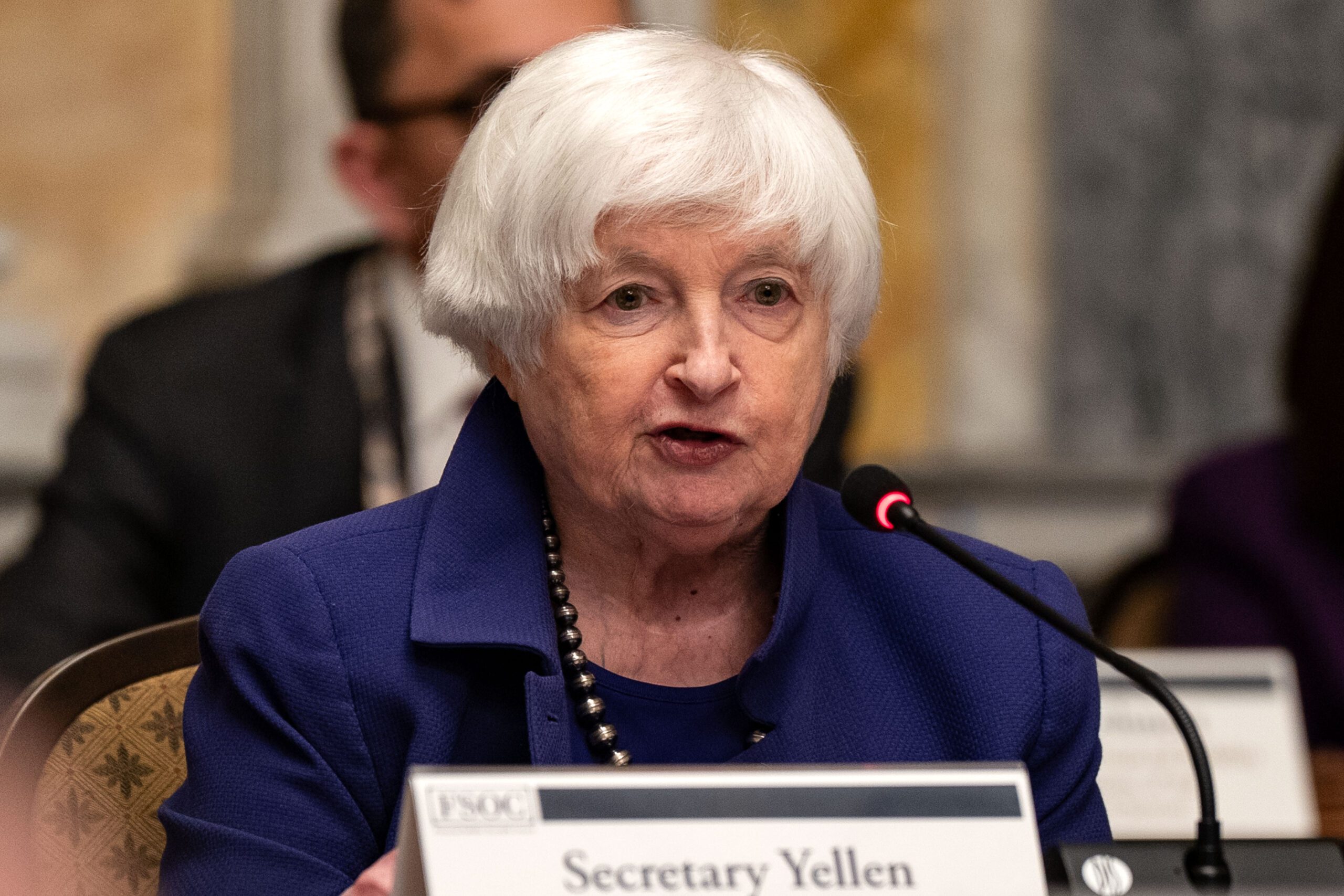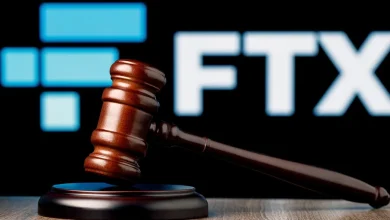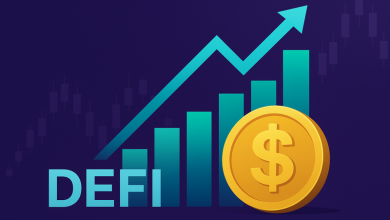Yellen and Crypto: How US Policy Impacts the Market


KEY TAKEAWAYS
- Janet Yellen approaches crypto with cautious optimism: supporting innovation while prioritising regulation and consumer securety.
- She advocates clear, enforceable laws governing stablecoins and digital asset markets.
- The FIT21 Act and Treasury enforcement strengthen market oversight and investor confidence.
- Stablecoins are under scrutiny due to risks that mirror those of traditional banking.
- Yellen’s policies aim to integrate crypto securely into mainstream finance, balancing opportunity with risk management.
- U.S. actions under Yellen’s influence on global crypto regulation and institutional adoption worldwide.
Cryptocurrency has become one of the most transformative yet volatile financial sectors in the last decade. As the United States holds a pivotal role in global finance, U.S. government policy has a significant influence on the trajectory of the cryptocurrency market.
Central to shaping this regulatory landscape is Janet Yellen, the US Secretary of the Treasury since January 2021. This article explores Yellen’s views, policies, and how broader US governmental actions impact , innovators, and the overall market dynamics.
Janet Yellen’s Stance on Cryptocurrency
Janet Yellen, a renowned economist and former Chair of the Federal Reserve, approached the crypto sector with cautious pragmatism upon becoming Treasury Secretary. She acknowledges both the innovation cryptocurrency brings and the risks it poses. Over her tenure, Yellen has emphasized the need for balanced, responsible regulation aimed at fostering innovation while protecting consumers and preserving financial stability.
Risk Awareness and Regulation Advocacy
Yellen has consistently highlighted the inherent risks in the , including extreme price volatility, fraud, lack of transparency, and potential threats to the broader financial system. One notable statement in November 2022 pointed to the failure of a major cryptocurrency platform, underscoring the need for “more effective oversight” and enforcement of consumer protection laws comparable to traditional financial products.
She made it clear that existing regulations must apply to crypto assets wherever relevant and that necessary legal gaps need to be swiftly addressed through legislative closure. For instance, Yellen has urged Congress to pass laws that grant regulatory bodies apparent authority over and spot crypto markets, which continue to pose unique risks, particularly related to the integrity of payment systems.
Supporting Responsible Innovation
Despite vocal concerns, Yellen is not opposed to crypto innovation. She believes regulation should support “responsible innovation”, a framework that encourages technological advancement while managing associated risks prudently.
In speeches, such as one at American University in April 2022, Yellen affirmed the importance of US leadership in digital assets as part of the future financial ecosystem. She advocated for a regulatory approach that keeps pace with the growing involvement of banks and traditional financial institutions in cryptocurrency markets.
The Impact of US Policy Under Yellen on Crypto Markets
The policies and regulatory signals from Yellen and the Treasury Department have a profound influence on market sentiment and operational norms within the cryptocurrency industry.
Increased Regulatory Clarity and Enforcement
One of Yellen’s key impacts has been pushing for clearer regulatory frameworks. The lack of explicit federal guidance has long been a source of uncertainty and volatility in the crypto markets.
Yellen’s advocacy for legislation, such as the Financial Innovation and Technology Act for the 21st Century (FIT21), aims to clarify the role and authority of federal regulators over digital assets. Clear rules assist establish investor confidence and clahead delineate the legal responsibilities of market actors.
Simultaneously, enforcement actions against fraud, money laundering, and illicit activities involving cryptocurrencies have intensified. The Treasury’s more assertive stance on policing cryptocurrency aligns with Yellen’s view that illegal activities undermine trust and endanger mainstream adoption.
Market Stability Concerns and Financial System Protection
Yellen and the US Treasury have also raised alarms about potential financial stability risks from crypto’s rapid growth. The Financial Stability Oversight Council warned that deeper integration between traditional finance and crypto markets could produce systemic risks that might spill over into the broader economy.
Stablecoins, designed to maintain parity with fiat currencies, have particularly come under scrutiny. Yellen emphasized that they pose “significant risks” due to their role in payment systems and the possible run risks, which resemble bank runs if large redemptions happen simultaneously. The Treasury’s position pushed efforts to regulate stablecoins tightly to prevent such destabilizing events.
Market Response and Innovation Ecosystem
Yellen’s approach has a dual influence on the trajectory of the crypto market. On one hand, warnings and advocacy for tight regulations can induce downward pressure on crypto prices, as investors fear increased oversight and potential constraints. Market volatility often spikes following regulatory announcements or enforcement actions.
On the other hand, her balanced call for innovation-supporting regulations has assisted reduce the crypto industry’s fear of a crackdown that could negate the entire market. Policies encouraging transparency, accountability, and integration with the existing financial system assist attract institutional investors and foster sustainable growth.
The Biden Administration’s executive order on digital assets, supported by Yellen, declared cryptocurrency to be a vital part of the financial future and encouraged agencies to coordinate policy responses accordingly.
Broader US Government Action and Crypto Market Effects
While Yellen holds a crucial influence through the , the crypto policy in the United States landscape involves many other key actors, including Congress, the SEC, the Federal Reserve, and the President. US policies following the 2024 elections reveal an evolving approach with notable shifts.
The Trump Crypto Reserve Initiative
In ahead 2025, President Donald Trump announced plans for a national strategic , aimed at including five major cryptocurrencies to bolster the United States’ position in the cryptocurrency space. Trump’s vision contrasts with the prior administration by actively endorsing ETH, BTC, and stablecoins as strategic assets under government stewardship, marking a potential bullish inflexion point for US crypto policy support.
Though Yellen’s stance is more conservative and regulation-focused, this initiative, along with Biden’s executive orders, reflects bipartisan recognition of digital assets as an integral part of the future financial system.
Legislative Progress and Regulatory Cooperation
Legislation such as tries to empower regulators with clearer mandates to overview digital assets. The framework is designed to harmonize federal oversight, closing regulatory gaps that once allowed amlargeuous operations or exploitative schemes. Yellen’s communication with Congress emphasizes urgency, urging quick passage to bring stability and consumer protections to digital asset markets.
Coordination across agencies under Biden’s executive order reflects an understanding that crypto’s complex nature necessitates a collaborative regulatory approach rather than fragmented jurisdictional battles, which historically exposed loopholes and inconsistencies affecting market confidence.
Challenges and Criticisms
Despite significant progress, Yellen’s policies and the US crypto regulatory approaches face criticism from industry stakeholders.
- Innovation vs. Regulation Balance: Some innovators and investors argue that US policies lean too heavily on risk aversion, potentially stifling innovation. They worry that overly strict rules or sluggish legislative processes limit the US’s competitive edge in the global crypto space.
- Lack of Unified Regulation: The crypto ecosystem remains challenging to regulate due to its decentralized and cross-border nature. Even with Yellen’s efforts, regulatory uncertainty persists around definitions of assets, custody responsibilities, and compliance requirements.
- Market Volatility Influence: Federal scrutiny has at times contributed to price swings, as crypto markets react anxiously to potential regulatory clampdowns.
Nevertheless, many analysts view Yellen’s tenure as a necessary phase in the maturation of crypto, where informed and balanced policy frameworks replace the chaotic ahead growth phase dominated by hype and unregulated experiments.
Balancing Innovation and Oversight: Janet Yellen’s Lasting Impact on US Crypto Policy
Janet Yellen’s role as U.S. Treasury Secretary has profoundly impacted the trajectory of cryptocurrency markets through a combination of advocacy for responsible innovation and robust regulatory oversight. Her policies underscore the necessity to protect consumers and the financial system while encouraging the secure integration of crypto into mainstream finance.
US policy under Yellen has brought increased clarity, enforcement, and a greater focus on systemic risk, particularly around stablecoins and institutional participation. Although regulatory challenges and industry pushback remain, her balanced approach assists usher the crypto ecosystem toward maturity and sustainability.
Looking ahead, the evolving US legislative landscape and bipartisan governmental recognition of digital assets as strategic financial tools signal that crypto will remain a core part of the economic future. Investors, developers, and users must navigate this nuanced regulatory environment carefully, balancing enthusiasm with compliance and risk awareness to capitalize on opportunities within a shifting policy terrain.
FAQ
What is Janet Yellen’s general stance on cryptocurrency?
Yellen supports responsible innovation while advocating for strong regulation to protect consumers, prevent fraud, and ensure financial stability.
Does Yellen support banning crypto?
No. She does not advocate for banning cryptocurrencies but insists they must operate within clear and enforceable regulatory frameworks.
Why does Yellen emphasize regulating stablecoins?
Stablecoins pose potential “run risks” similar to bank failures if mass redemptions occur. Yellen urges Congress to regulate them to secureguard payment systems and economic stability.
How have Yellen’s policies affected crypto markets?
Her calls for stronger oversight sometimes cause short-term market volatility, but long-term clarity builds investor confidence and institutional trust in digital assets.
What legislation has Yellen supported regarding crypto regulation?
She supports the Financial Innovation and Technology for the 21st Century Act (FIT21), which aims to provide federal agencies with more apparent authority over digital assets and close regulatory gaps.







